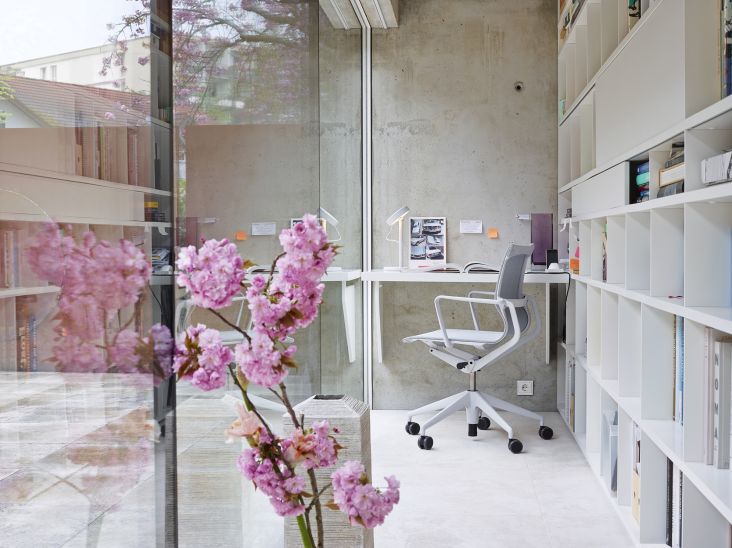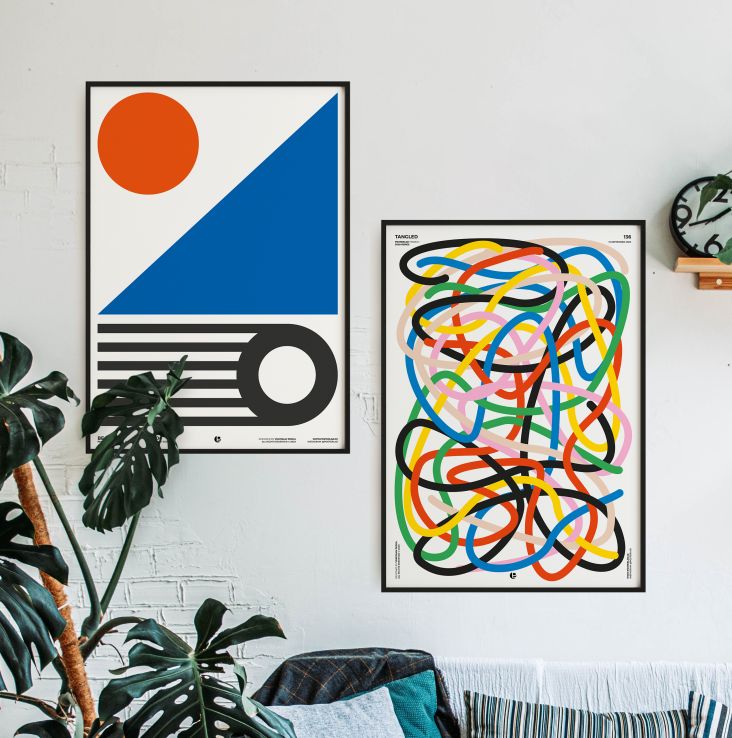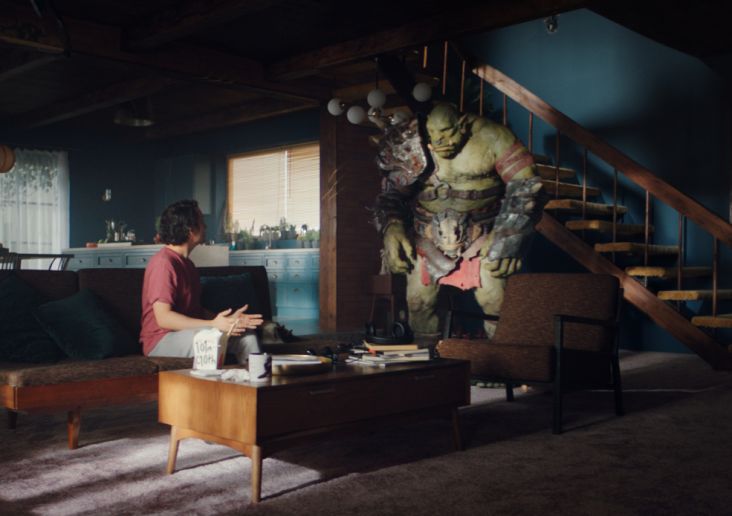How to help young blood feel welcome in your agency at a time of WFH, uncertainty and lockdowns
The Covid-19 crisis has been challenging for everyone. The creative industries, like many others, have taken a battering. But we mustn't overlook how impactful it has been for those just starting in their careers.

Image licensed via Adobe Stock
It's those fresh, bright-eyed graduates who bring a new lease of life, energy, and creative spark to agencies. The excitement and thirst for learning and adapting are infectious and allows for new ideas to be born.
Nurturing that curiosity and buzz was so much easier eight months ago, when you could invite a recruit into the studio, introduce them to the team, set up their workspace, and allow them to soak up the culture and learn, hands-on, what makes your agency unique. So how can we care for "young blood" in a remote-working situation? We spoke with some creative agencies and new-starters about what it's been like for them.
Bruce Drinkwater, Chairman and Founder, StormBrands
As art in the school curriculum seems to be being side-lined, there has never been a more important time to encourage creativity from the youth who bring in the spark and the fun into the agency world. So, as agency owners figure out what the "new normal" will look like, make sure you don't forget the young blood.
There is nothing like a studio environment in a good agency; there are a real buzz and energy, and lots of opportunities to collaborate, get involved, share ideas and LEARN. So, naturally, it's a tough time for the recent graduates as they enter the creative world.
A lot of learning is spontaneous as you explore what's going on and see other designers' approaches and techniques. I know that when I first graduated, I annoyed everyone with my constant questions and thirst for knowledge, although that's a rite of passage for all those embarking on a new career adventure! But in a virtual world, this could be lost as there is a tendency to work in bubbles on specific projects, which means there is limited exposure to what else is happening.
My advice to new interns or graduates looking for a role is to do your homework and consider developing a plan as to how you can work both remotely and, when allowed, in the office, considering:
1. How can I add value while working remotely?
2. What software would help me communicate remotely, e.g. Miro?
3. What skills do I have to offer that will require limited training? How can I communicate this to potential employees?
To agencies, I'd suggest that young blood is vital to bring that energy and those great ideas into the studio, even if you are working remotely. Things to consider:
1. Ensure you have a How we work manual so you can share best practice.
2. Make sure that each junior colleague has at least two mentors. Ideally, each working alongside them in the office one day a week or, if not possible, working remotely with a monitor on permanent Zoom to allow for the opportunity to ask questions and be mentored effectively.
3. Map out workstreams and figure out which require the least support and which the most. This will allow you to plan work more effectively.
4. Have an internal communication platform like Workplace or Slack channel to communicate the latest work and share thoughts, as well as an excellent opportunity to organise social events. This will help the fresh starters feel integral to the business.
Chris Holmes, Managing Partner, Employee Experience, Brandpie
Agency life can be very "in the moment", and you often lose sight of the bigger, longer-term picture. It's essential during the initiation process that you provide answers to some key questions. Why does our agency exist, and what do we stand for? What do we want to achieve in the long-term? Given everything that is going on in the world, it's even more important that we provide that sense of stability, as well as a goal that we can all contribute to.
Then there's the "what does it mean for me" question, so alongside those bigger questions, we take the time to listen to our people. That is where VYTALS comes in. It's a safe forum where they can anonymously share their real thoughts so we can understand what they're feeling, and then take actions to enhance their day to day experiences. It's effortless, but people said they missed the social interaction, so every Thursday we have a short Zoom call titled 'Pie goes Pop'. Two people select a song that's meaningful to them, plays it and explains why. It really took off – to the point where people were creating presentations before they played "their" song and giving us amazing, creative stories.
Finally, one of our values is "step up", so we gave young talent briefs that would integrate them into agency life. For example, Jess (a recent grad) gave an all agency presentation that was daunting for her, but provided focus, showcased her ability and integrated her into Brandpie. There's an agency culture of "learning on the job" and whilst an element of that will always exist, we always talk about the longer-term vision, so people know what they're working towards.
Ruby Goom, account executive at Red Setter
Joining a new company remotely and going through the onboarding process via video chats can feel very overwhelming and quite isolating at first. Agency environments are full of energy, creativity and collaboration, and I was worried it would be difficult to learn about the team, understand my role and do the best I could in this new working environment that everyone was adapting to. But I was talked through Red Setter's backstory, their vision for the future, and how I fitted into their plans on the first day, which helped me to feel part of the team and settled in my role.
It was challenging from a social perspective as it's so much easier to get to know your teammates in an office setting, rather than Zoom calls and group chats, but I was introduced to the small team I'd be working with day-to-day, and they were supportive straight away.
We catch up on video calls and team chats most days so I can ask any questions and talk about what I'm working on – sort of like a replacement to turning to your teammate in the office. Agency life is very fast-paced, and recreating this collaborative atmosphere helped me learn from others as I would in the office, feel connected to the team and grow in confidence in my role.
Mark Paton, Creative Partner, Here Design (and Issac Williamson, Junior Graphic Designer, Here Design)
To answer this question, I chatted to Isaac Williamson who joined us full time at the beginning of the lockdown in March, so has experienced it first-hand!
We spoke about two big compromises for anyone joining a studio at the moment: the loss of that freedom to ask lots of questions all of the time (not wanting to be too invasive), and the lack of day to day spontaneous feedback from colleagues – both of which help to build confidence.
We have approached these challenges by encouraging lots of communication and regular check-ins – clearly establishing that you have support while giving opportunities to talk a problem through.
Part of this has involved using Miro, which allows for intuitive, collaborative work, Teams for project chats, Slack as more of a social platform and Spotify for shared playlists. We've also set up our own radio station as a form of replacement for those random conversations you encounter at the studio.
Isaac and I feel that working from home has been a bit of a leveller – and consequently, Isaac has had just as many, if not more opportunities to join client meetings and contribute to those discussions. It's not quite as daunting to present work on screen as it is in person – so it's a good way of getting experience ready for when meetings are face to face again.
The hardest bit has been maintaining and conveying our unique studio culture when everyone is working remotely – the more intangible experiences that foster a feeling of belonging. We recently got everyone together for the first time since March, and it was clear that despite all of the technological advances and tools, there's just no substitute for real-life social interaction. We are looking forward to the day when Isaac can be in amongst everyone else in the noise and bustle of the studio.
Ryan Tym, Founder and Director of Lantern Design
WFH means that the process of onboarding a new team member will take longer, so be prepared to invest more time into it. Make allowances for more of the team to meet recruits during the interview stage than you ordinarily would. Having the opportunity to build bonds and gain consensus on a new hire from the outset will help to create the space for someone new.
Once onboard, productivity will likely slow with a new hire, as they get up to speed on things, but that's the short term. Creating the right induction will soon have them integrated into the business, resulting in long term gains. Set up working channels in Slack to enable quick sharing of work between team members, so new starters can get regular feedback on their progress and have access to reference points. Maintain learning opportunities through virtual visits from printers, typographers and photographers that will help to build a young designer's professional network and skill set.
Remember that WFH is a bit like Marmite – some love it, some hate it. So it's important to shift the conversation away from work at times, to relieve stress and tension. Having weekly events in the calendar is good for team morale. A monthly team lunch (via Deliveroo) or beers and wine delivered to team homes on a Thursday afternoon, for sharing in a virtual pub are easy ways to do this.
The perk of a small agency is that it may fit within the rule of six, so external social situations are still possible. Host them when and where it's safe to do so, to cement in-person bonding.






 using <a href="https://www.ohnotype.co/fonts/obviously" target="_blank">Obviously</a> by Oh No Type Co., Art Director, Brand & Creative—Spotify](https://www.creativeboom.com/upload/articles/6e/6ed31eddc26fa563f213fc76d6993dab9231ffe4_732.jpg)
 by Tüpokompanii](https://www.creativeboom.com/upload/articles/58/58684538770fb5b428dc1882f7a732f153500153_732.jpg)















